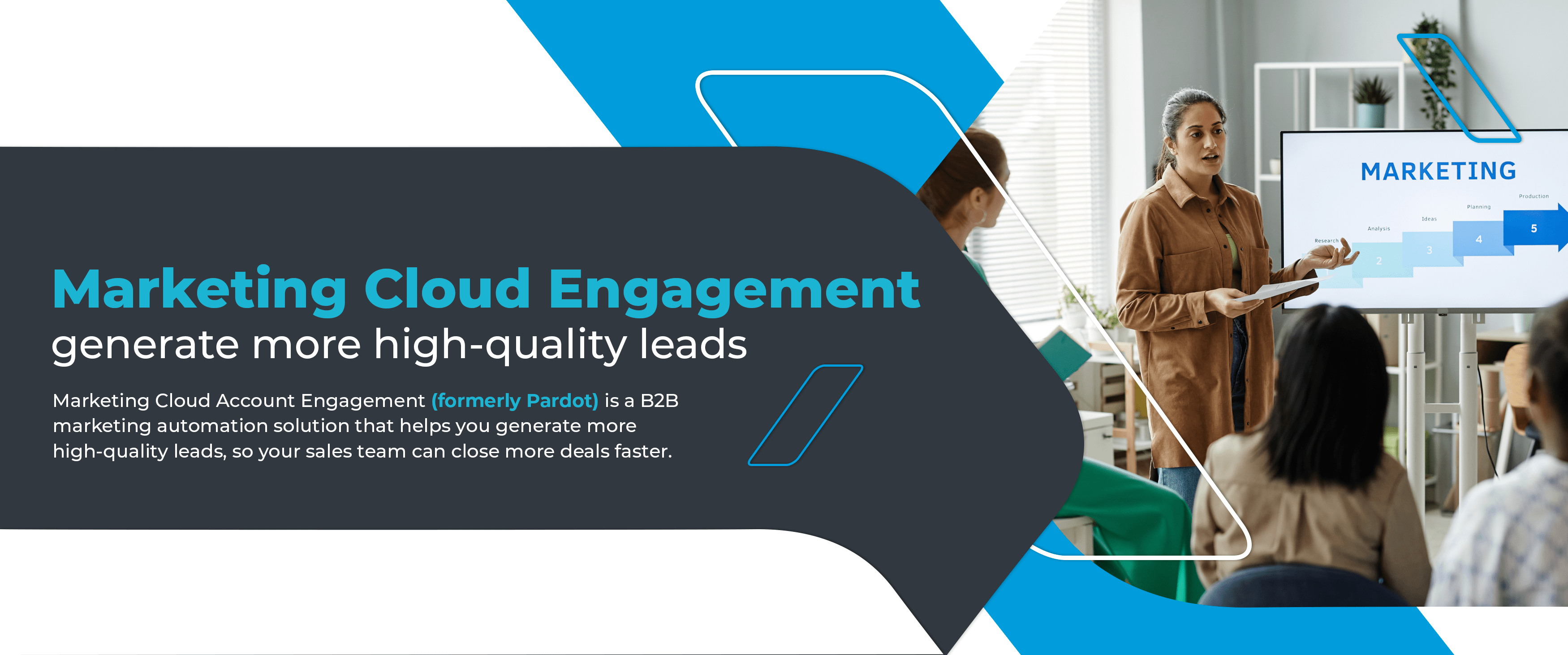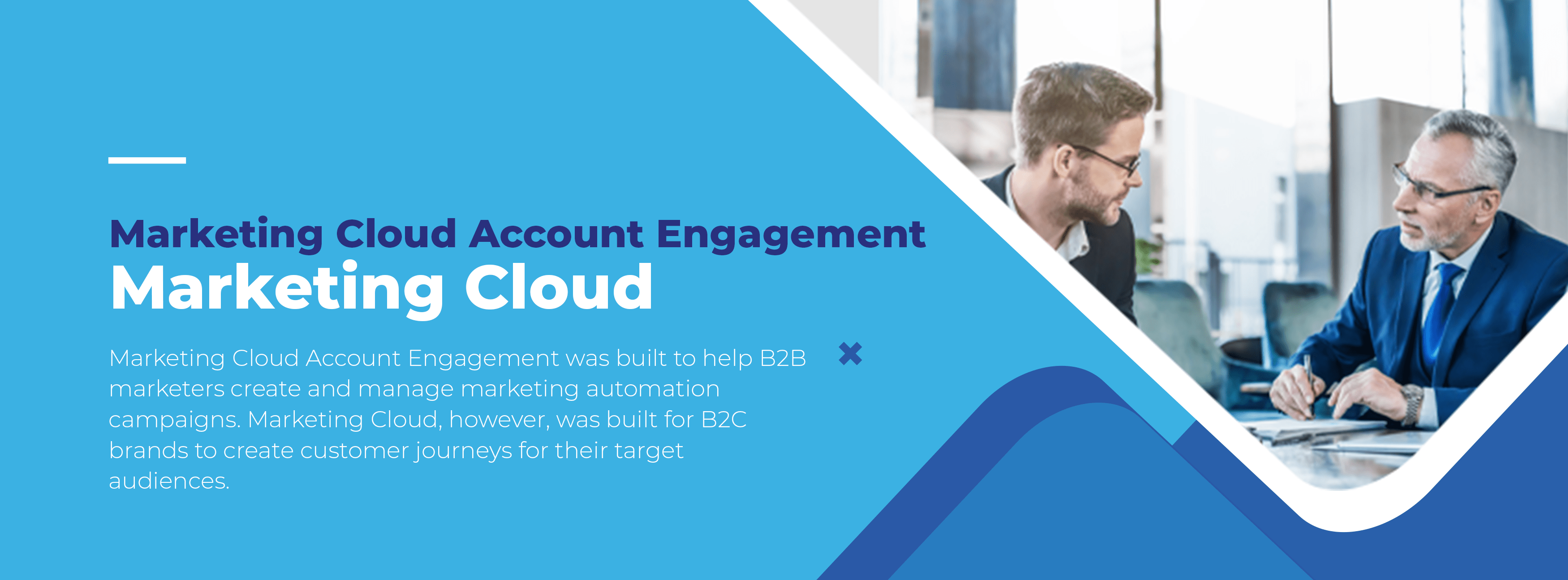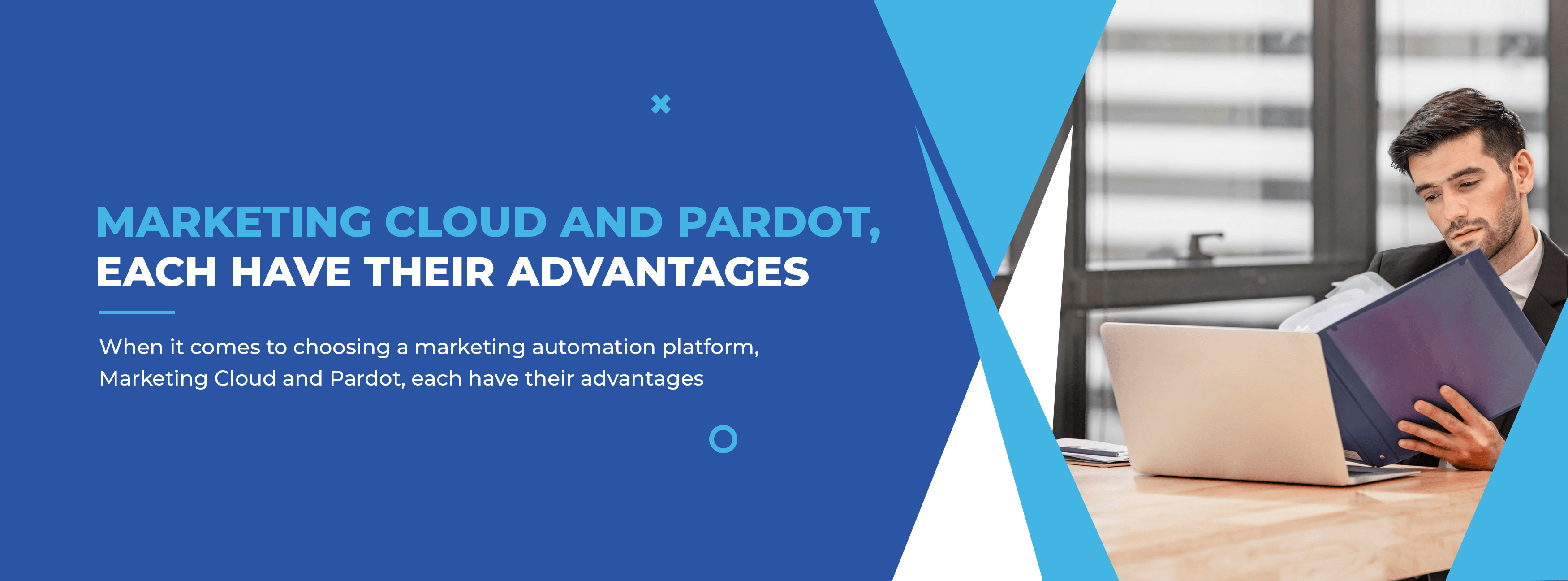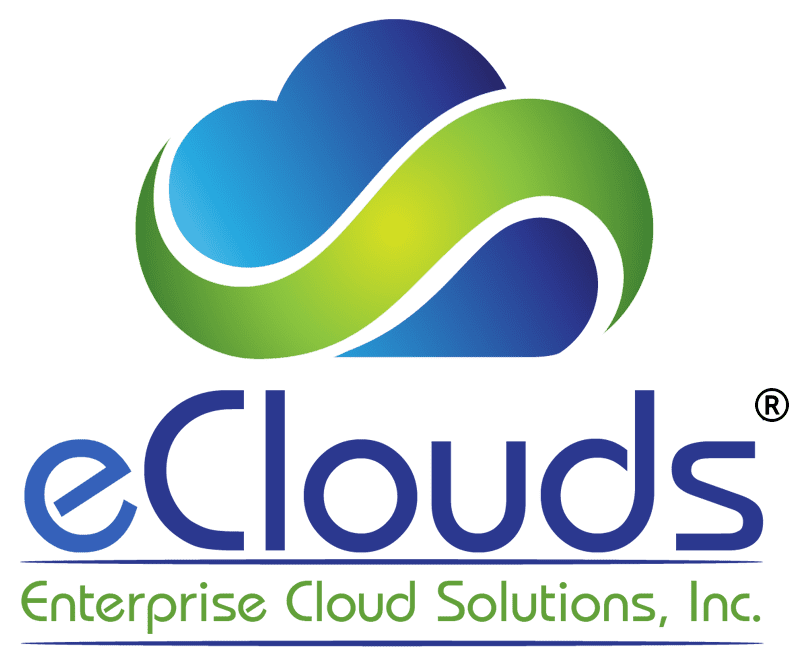inquiry@eclouds.co
March 28, 2023
Pardot vs. Marketing: Know the Key Difference Between the Two
In Marketing Cloud
By Mikael Petersson
- What is Salesforce Pardot or Marketing Cloud Account Engagement?
- What is Salesforce Marketing Cloud?
- Key Differences between Account Engagement and Salesforce Marketing Cloud
- In terms of
- Can You Use Both Marketing Cloud and Account Engagement?
- When to Choose Salesforce Marketing Cloud for your Business?
- When to Choose Account Engagement for your Business?
- How eClouds Can Help?
Pardot and Marketing clouds are both automation and digital analytics platforms owned by Salesforce. Most recently, Salesforce announced they would rename Pardot to 'Marketing Cloud Account Engagement.' For newcomers to the marketing technology space, knowing which platform is right for your business can be confusing. Though Pardot and Marketing Cloud are separate products, they share many of the same features. So if you’re deciding which is right for your business, this article will help you understand the difference between Pardot vs. Marketing cloud.
What is Salesforce Pardot or Marketing Cloud Account Engagement?
Marketing Cloud Account Engagement (formerly Pardot) is a B2B marketing automation solution that helps you generate more high-quality leads, so your sales team can close more deals faster. Powered by AI and built on the world's number one CRM (Salesforce), it allows customers to align their marketing and sales teams all in one place. It also offers personalized customer journeys based on a prospect's interaction and gives you a full view of your campaigns' performance.
You can create, edit, and send personalized emails that deliver the right message every time with Lightning Email Builder. The software makes it easy to build and launch customized lead capture forms to gather the needed data, while progressive profiling lets you build out prospect data over time. Engagement history is captured on each prospect's record, so sales have the necessary information, and artificial intelligence with Salesforce Einstein can transform your marketing and sales efforts. Einstein Lead Scoring finds leads that are most likely to become customers, and Einstein Behavior Scoring lets you know when they're getting ready to buy.
When you use Marketing Cloud Account Engagement, your sales team will get real-time alerts about each prospect's activity. The sales team can respond to their needs and continue the conversation with pre-approved marketing emails from within Salesforce. You'll also get a full view of your campaign's pipeline and what content performs best, so you can understand where your best leads come from with dynamic views of your data.
What is Salesforce Marketing Cloud?
Marketing Cloud is a platform for delivering relevant, personalized experiences across channels and devices.
Marketing Cloud is an integrated marketing platform that helps you engage customers at every touchpoint in their journey with your brand. Whether you're looking to improve customer acquisition, create a personalized experience across channels or optimize your advertising spend, Marketing Cloud has a solution.
Key Differences between Account Engagement and Salesforce Marketing Cloud
Marketing Cloud is a platform for delivering relevant, personalized experiences across channels and devices.
Marketing Cloud is an integrated marketing platform that helps you engage customers at every touchpoint in their journey with your brand. Whether you're looking to improve customer acquisition, create a personalized experience across channels or optimize your advertising spend, Marketing Cloud has a solution.
In terms of
Market Segment
Pardot (Account Engagement)
- A tool that powers marketing and sales success by improving alignment between teams.
- Driving and nurturing new leads is used mainly for “considered purchases” with long sales cycles and multiple decision-makers.
- Often referred to as B2B marketing.
Marketing Cloud
- Humanizing every moment for each customer inspires action and loyalty.
- ads
- e-commerce
- social
- service and more
- Better suited for use in multiple marketing channels
- Often referred to as a B2C marketing tool.
Starting Price
Pardot or Marketing Cloud Account Engagement Pricing
Pardot Pricing Starts at $1,250 /month/up to 10,000 contacts

Marketing Cloud Customer Data Platform Pricing
This product comes in four different editions: Basic, Pro, Corporate, and Enterprise. Licenses start from $400/org/month, through to four-figure amounts that aren't even quoted on the website.
The Buying Cycle
There are key differences between Pardot and Marketing Cloud. One difference is the buying cycle: smaller databases with higher-value sales tend to do better with Pardot, while larger databases with smaller-valued sales tend to do better with Marketing Cloud.
Functionality/Key Features
Marketing Cloud Account Engagement was built to help B2B marketers create and manage marketing automation campaigns. Marketing Cloud, however, was built for B2C brands to create customer journeys for their target audiences. Nowadays, many B2B companies use Marketing Cloud to create B2C-style experiences for decision-makers within their target businesses.
Now let's take a closer look at exactly what makes them different:
Typical Uses
Pardot is strong in supporting:
- Lead generation
- Lead scoring
- Lead assignment
- Lead qualification to ensure that the time sales reps spend with prospects will be worth their time.
Pardot is also very useful for
- email nurture campaigns
- content marketing
- webinar marketing
- account-based marketing
Marketing Cloud specializes in
- real-time messaging
- cross-channel marketing
- mobile marketing
- social media engagement
- display advertising
- e-commerce
- it exists as a more multi-media, multi-platform tool that gives users many possibilities.
Ideal Industries
Pardot is valuable for any B2B organization with long sales cycles and multiple conversion points or pipeline stages.
Marketing clouds work well for a range of Industries, especially:
- Retail
- FMCG
- Health and beauty
- Travel and Leisure
Engagements
Automate your business processes and use intelligence to engage customers.
- Automate cross-channel experiences to deliver real-time, personalized customer journeys.
- Send messages to your customers via email and mobile that are personalized and relevant.
- Make smarter decisions with embedded AI and analytics to locate the perfect send time, send frequency, and content for each audience member.
- Use first-party data to improve your return on ad spend and acquire new customers.

Can You Use Both Marketing Cloud and Account Engagement?
Yes, you can use Marketing Cloud and Pardot together if you have the budget to spend.
When deciding which platform is best for your business, the cost is just one factor to consider. Although it can often seem like this is the most important aspect to consider, especially when making a business case to your stakeholders, the more important things to consider are:
- Can the system scale with your business?
- How will your marketing team grow over time?
- What are your goals with marketing automation?
When to Choose Salesforce Marketing Cloud for your Business?
Marketing Cloud helps you inspire action and loyalty by personalizing every interaction. It's made for transactional purposes across multiple marketing channels, including advertising, email marketing, social media engagement, display advertising, and e-commerce. Marketing Cloud is a multi-media tool that gives users many possibilities.
When to Choose Account Engagement for your Business?
Pardot helps businesses improve alignment between marketing and sales teams by nurturing leads and driving sales. Pardot is often referred to as a B2B marketing tool because it's great at generating leads, scoring those leads, and then assigning them to sales reps who can nurture them further. Pardot also makes it easy to create email campaigns, webinars, and other content that will help engage prospective clients so that your team can spend less time contacting uninterested prospects and more time talking with people who are genuinely interested in what you have to offer.
When it comes to choosing a marketing automation platform, Marketing Cloud and Pardot, each have their advantages. Marketing Cloud is better suited for businesses that have multiple channels they need to engage with customers on or that need to assist in their customers' journey. Pardot is better for those whose sales process requires long-term nurture and who need to bridge the gap between sales and marketing teams.

How eClouds Experts Can Help?
If you are looking for a Salesforce implementation partner, we can help. We have more than 16 years of experience in Salesforce, and eCloud is a leading Salesforce partner. Our experts are certified, experienced, and ready to help you implement and manage the Salesforce platform in your organization.
We have extensive experience in Salesforce implementation and have executed various projects in various industries. Our team has worked with customers from different verticals and has gained deep insight into their unique business processes, which helps us to provide them with an optimal solution.
In fact, eClouds.co rated 4.9 out of 5 in customer satisfaction based on reviews by Salesforce Community members and feedback gathered in project satisfaction surveys.

Citation/Reference
Marketing Cloud Account Engagement. Retrieved from Salesforce (n.d).Why Salesforce Marketing Cloud? Retrieved from Salesforce (n.d)
Marketing Cloud Account Engagement Pricing. Retrieved from Salesforce (n.d).
Marketing Cloud Engagement. Retrieved from Salesforce (n.d).
We are eClouds. Retrieved from eClouds (n.d).
Popular Post

Dec. 16, 2022
A Complete Guide to Understanding Salesforce Sales Cloud

Jan. 06, 2023
5 Things You Should Consider in Choosing Your Salesforce Implementation Partner

Jan. 16, 2023
11 Key Benefits of CPQ Every Business Needs to Know

Jan. 28, 2023
10 Most Common CRM Implementation Challenges that You Must Be Aware Of

Feb. 09, 2023





